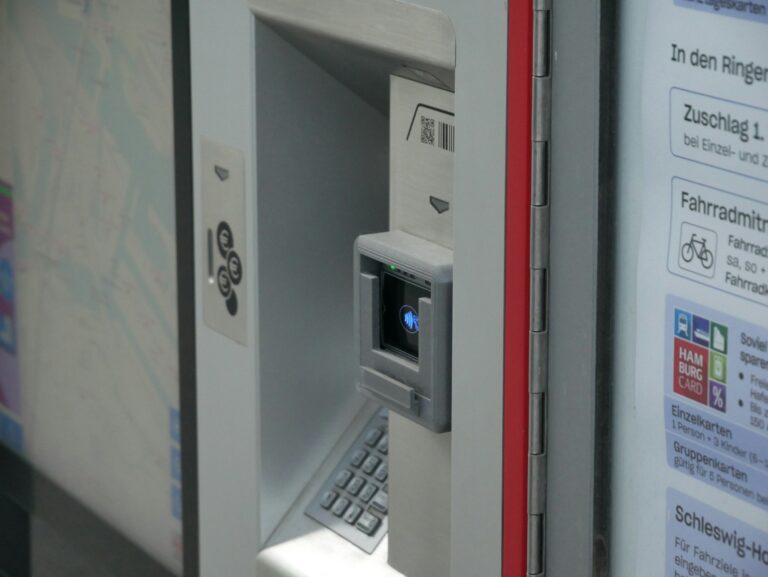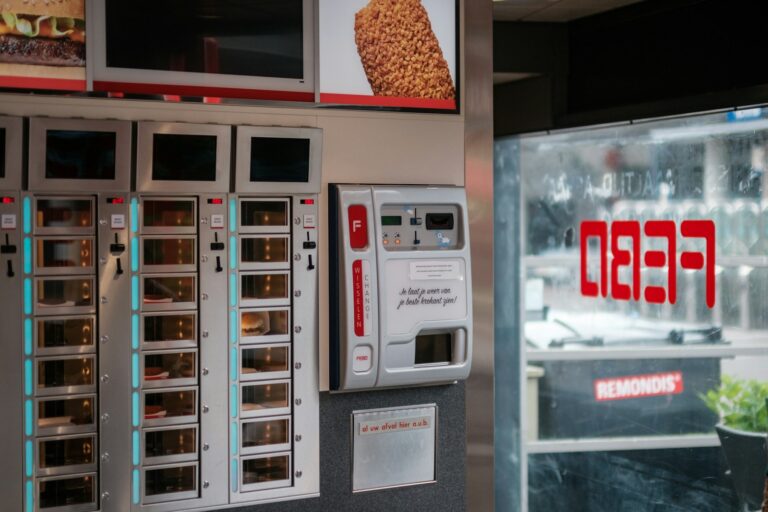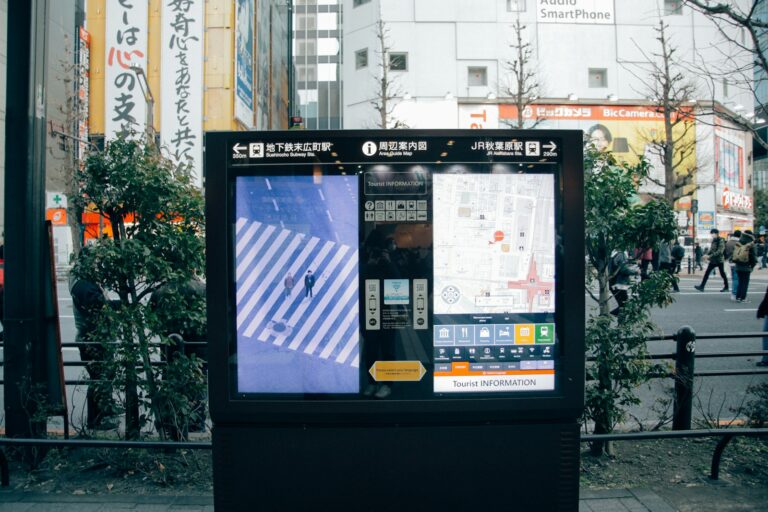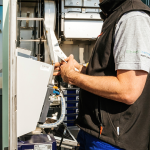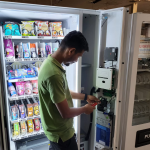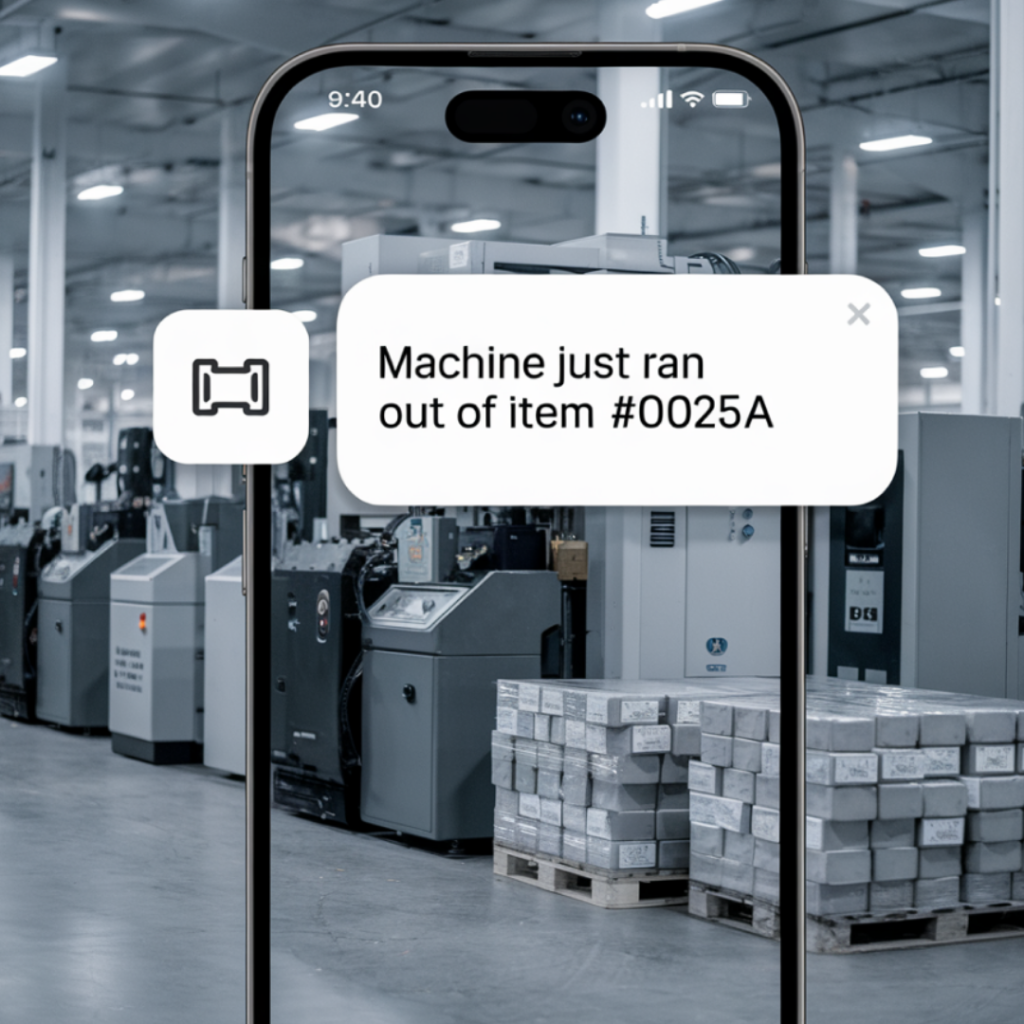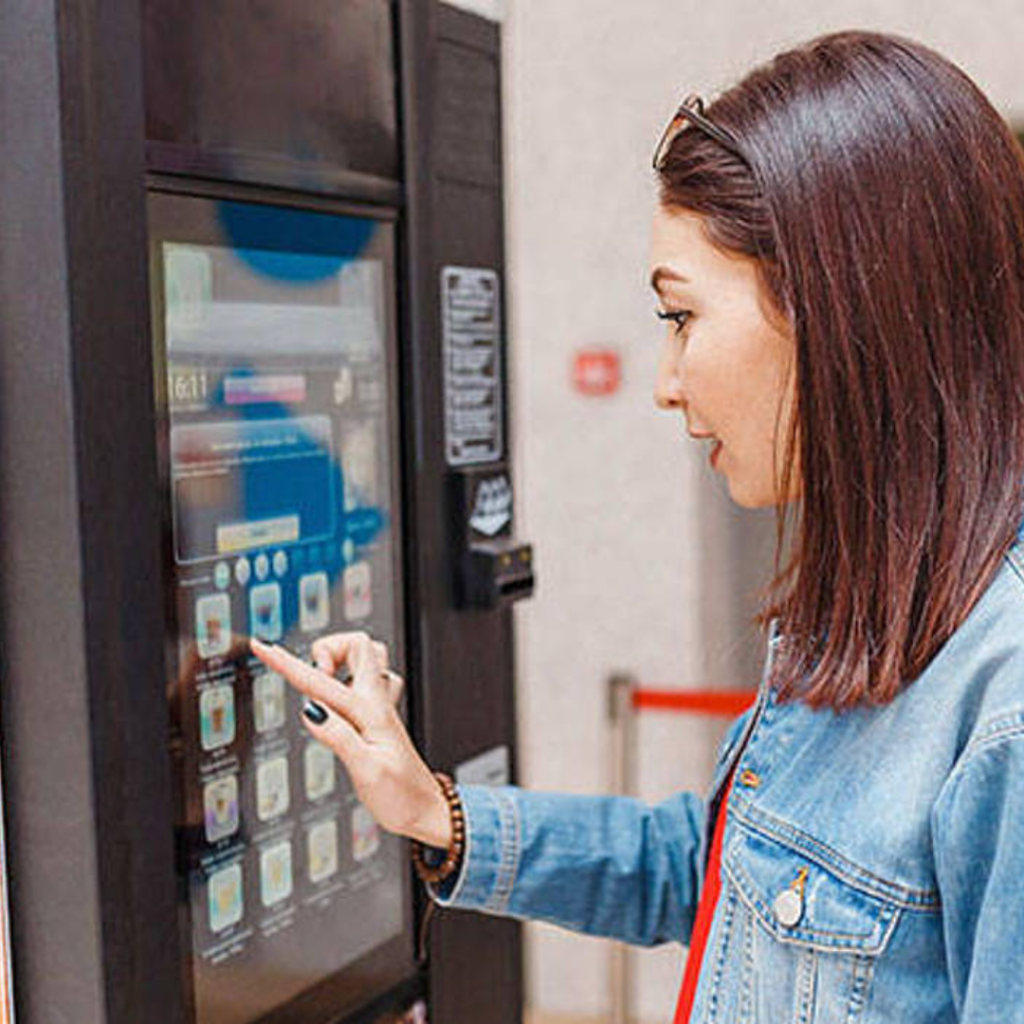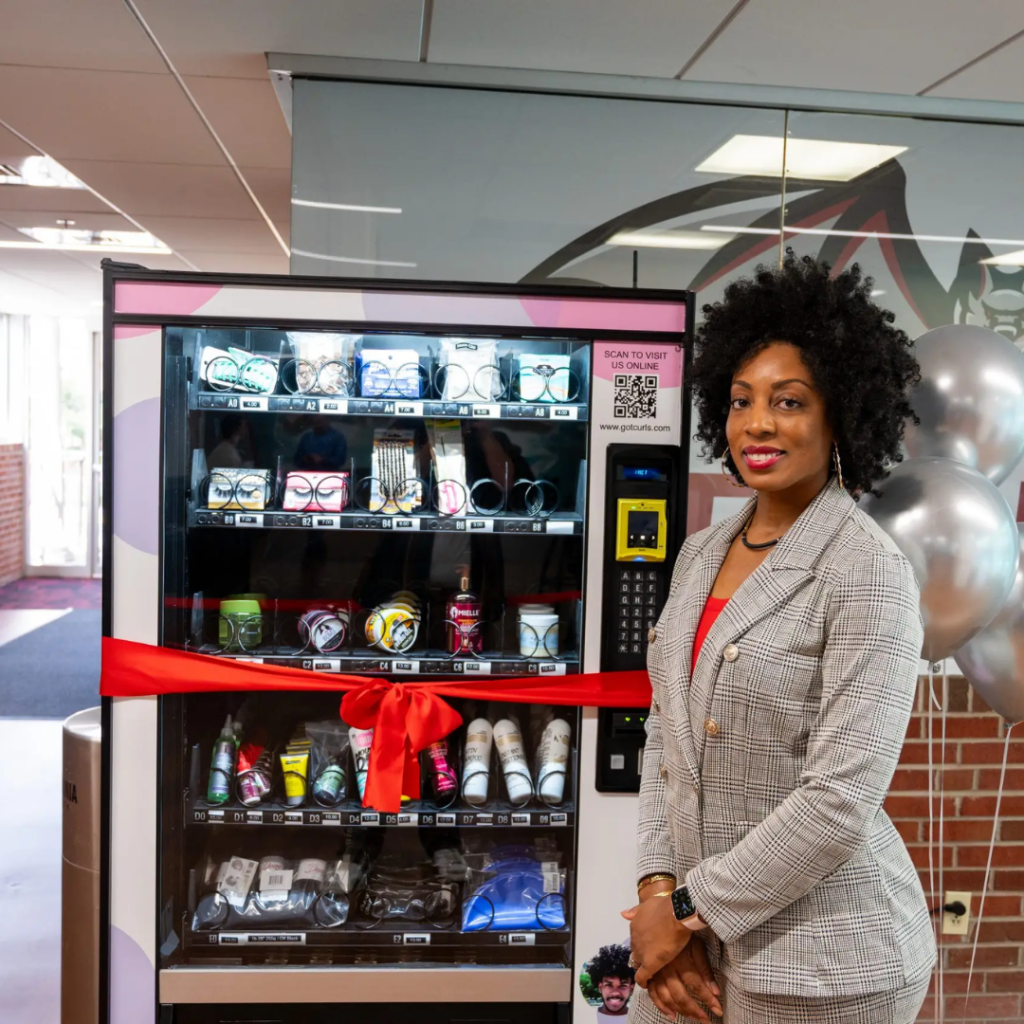Export ready American built machines in stock, shipping from Miami
Do You Need an LLC for a Vending Machine Business? Your Ultimate Legal & Profitability Guide
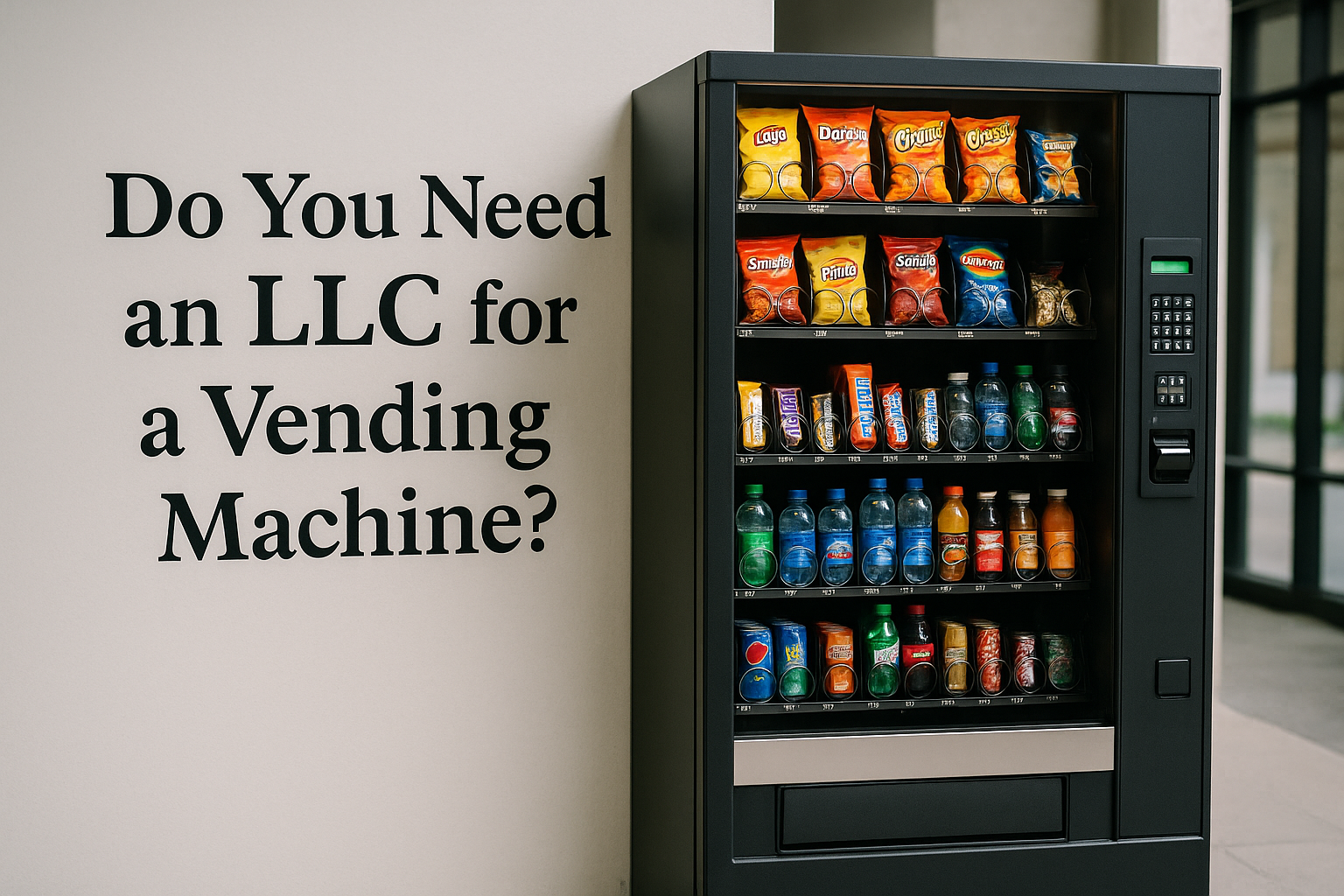
Starting a vending machine business can be one of the easiest and most affordable ways to generate passive income. But before you install your first machine, it’s important to understand the legal structure behind it—specifically, whether forming an LLC for vending machine operations is the right move. While the model is low-barrier, it still operates in public spaces, handles cash flow, and comes with liability risks that smart business owners can’t afford to ignore.
One of the first questions you should ask is:
Do you need an LLC for a vending machine business?
While the answer isn’t always a legal requirement, it’s often a strategic advantage. Whether you’re placing a single machine in a local barbershop or scaling 50 across commercial properties, understanding the role of an LLC for vending machine businesses is essential to protecting your assets, building credibility, and preparing for long-term growth.
Do You Need an LLC for Vending Machines?
Here’s the truth:
No, you don’t legally need an LLC to start a vending machine business. You can operate as a sole proprietor in most states without forming any kind of business entity.
But legality isn’t the only thing that matters—liability protection, tax benefits, and long-term credibility are just as important.
Think of it this way: vending machines operate in shared or public spaces. That means if someone were to slip and fall while using your machine, or if a product malfunctioned and caused injury, you could be held responsible if you’re operating without legal protection.
An LLC (Limited Liability Company) protects your personal assets—your house, savings, and car—from any business-related lawsuit or debt. It acts as a legal shield, separating you from your business.
That alone makes forming an LLC for vending machines one of the smartest moves you can make.
Why Sole Proprietors in Vending Face More Risk
If you don’t set up a formal business structure, you are by default a sole proprietor. That means:
- There’s no separation between your personal and business finances
- You report income and losses on your personal tax return
- You have zero liability protection
That may work fine when you’re testing a single machine in a safe space, but if your goal is growth—or if your machines will be placed in gyms, salons, offices, schools, or public venues—that model becomes risky fast.
You wouldn’t leave your machine unsecured in a parking lot—so why leave your business legally unprotected?
When Should You Start an LLC for a Vending Machine Business?
You might not need one from day one—but you will need one if you’re serious about building a legitimate, sustainable vending business.
Start an LLC when:
- You install your machine in a public or third-party space
- You’re negotiating contracts with property owners
- You want to open a business bank account
- You plan to hire employees or work with vendors
- You’re purchasing premium machines like a combo vending machine
An LLC gives you the foundation to scale responsibly. It also makes your business more attractive to location owners. When negotiating a contract with a fitness center, for instance, saying “I run XYZ Vending LLC” sounds far more credible than “I run a vending hustle on the side.”
What’s the Risk of Not Having an LLC for Vending Machines?
Here are real-world scenarios where operating without an LLC can come back to bite:
- A customer claims they got food poisoning from a product in your machine
- A vending machine tips over due to poor placement and injures someone
- Your machine malfunctions and damages nearby property
- A property owner sues for breach of contract or damages
- A tax audit reveals poor recordkeeping due to mixed personal/business finances
Any of these can result in lawsuits, fines, or out-of-pocket expenses that could threaten your personal savings. With an LLC, your personal assets stay off the table.
How Do You Get Permission to Install a Vending Machine?
To place a vending machine in any location you don’t own, you need written permission from the property owner or business manager.
This usually involves:
- A placement agreement or location contract
- Agreement on commission (e.g., 10–20% of profits to the owner)
- Ensuring you’re insured and legally registered
You may also need local:
- Vending permits
- Sales tax registration
- Food handling licenses, depending on the product
Cities and counties have different rules, so check with your local government or chamber of commerce.
Having an LLC helps build trust in these situations. You’re more likely to secure high-traffic locations when you operate as a formal business.
Maximizing Profit While Minimizing Exposure
Profit margins in vending can range from 30% to 100%, depending on:
- Product selection
- Location foot traffic
- Overhead (rent, commission, inventory)
- Machine type and reliability
But as profits grow, so does your exposure.
If you’re selling electronics, phone accessories, or expensive items via an electronics vending machine, imagine the risk of theft, damage, or malfunction. With no LLC, you’re left holding the bag.
An LLC doesn’t just protect your money—it protects the machine, the revenue, and your business future.
What Is an LLC, Really? (And Why It Matters)
An LLC (Limited Liability Company) is a legal business structure that:
- Separates your personal and business finances
- Protects your personal assets
- Allows you to open a business bank account
- Lets you choose how your business is taxed
- Adds legitimacy to your brand
Unlike corporations, LLCs are flexible, low-maintenance, and perfect for small or medium-sized vending businesses. You don’t need a board of directors, shareholder meetings, or complex filings.
With an LLC, you get liability protection and a clean structure to grow—without the red tape.
How to Get an LLC for Vending Machines: Step-by-Step
If you’re ready to make it official, here’s how to start an LLC for a vending machine business:
1. Choose Your State
- If your machines are all in one state, register there.
- If you’re operating across states, consider forming your LLC in your primary state and registering as a foreign LLC elsewhere.
2. Pick a Business Name
- It must be unique in your state.
- Avoid names that are too generic or violate trademarks.
3. File Articles of Organization
- Submit this form to your state’s Secretary of State.
- Fees vary by state (usually $40–$500).
4. Appoint a Registered Agent
- This is the person or service responsible for receiving legal documents.
- Can be yourself, a business partner, or a third-party service.
5. Get an EIN from the IRS
- An Employer Identification Number (EIN) is like a Social Security number for your business.
- Required if you plan to hire staff, open a bank account, or file taxes.
- It’s free to apply at irs.gov.
6. Open a Business Bank Account
- Never mix personal and business finances.
- Keeps bookkeeping clean and simplifies tax filing.
Optional but wise:
- Create an Operating Agreement (especially for multi-member LLCs)
- Get liability insurance
- Start tracking expenses and income with software
Recap: Why You Should Start an LLC for Your Vending Machine Business
Even if it’s not legally required, forming an LLC for vending machines offers:
✅ Legal protection for your personal assets
✅ Professionalism and business credibility
✅ Easier tax filing and bookkeeping
✅ A foundation for growth
✅ More success negotiating contracts and location deals
It’s a minimal investment for maximum peace of mind.
How Much Does It Cost to Start an LLC for a Vending Machine Business?
One of the biggest advantages of forming an LLC is how affordable it is compared to the protection and credibility it provides. If you’re wondering, how much does a vending machine LLC cost, here’s a breakdown:
Typical LLC Costs by State
- State Filing Fee: $40–$500 (varies by state; most are under $200)
- Registered Agent (if you use one): $50–$200/year
- Annual Report or Renewal Fees: $0–$250 (some states require none)
- Operating Agreement (optional): Free if you write it yourself; $50–$150 if using a legal service
- Legal/Formation Service (optional): $0–$300 depending on the provider (LegalZoom, IncFile, etc.)
For example, if you register your LLC in a state like Wyoming, the total could be under $100. If you’re in California, it might be $800+ due to their annual franchise tax.
Even at the high end, it’s a small investment compared to the risks of operating without one—especially if you’re placing high-value machines like a coffee vending machine or electronics vending machine in public-facing environments.
Do You Need an EIN for a Vending Machine Business?
Yes. If you’re operating as an LLC or plan to hire employees, accept credit card payments, or open a business bank account, you absolutely need an Employer Identification Number (EIN).
Even if you’re a single-member LLC, most banks require an EIN to set up a commercial account. You’ll also need it for:
- Filing federal and state taxes
- Registering for sales tax collection
- Working with suppliers or large property owners
The good news? It’s completely free and takes 10 minutes to apply on the IRS website. No lawyer, no fees—just a few simple forms.
If you’re selling through machines with cashless systems—like a vending machine with card reader—an EIN makes bookkeeping and tax reporting far easier.
Best States to Open an LLC for a Vending Machine Business
You might have heard that states like Wyoming, Delaware, and Nevada are “best” for forming LLCs. But that’s not always the case for vending businesses.
Top States (On Paper)
- Wyoming: Low fees, privacy, no corporate income tax
- Delaware: Great for tech startups, legal protection
- Nevada: No franchise tax or state income tax
But here’s the catch:
If your machines are physically located in another state (like Florida or Texas), you’ll still need to register as a foreign LLC in that state. That means double fees, double paperwork.
So What’s the Best Option?
Form your LLC in the state where your vending machines operate.
It’s cleaner, easier to maintain, and often less expensive long-term.
If you expand to other states later, then you can worry about foreign registration. But for now, stick with simplicity.
Real-Life Scenarios Where an LLC Made the Difference
- A machine tips over at a school event, injuring a child. Without an LLC and proper insurance, you’re personally liable.
- You sign a location contract that falls through. If you’re not operating as a formal entity, it’s harder to enforce or negotiate terms.
- You scale from one machine to 15 across three cities. Without an LLC, tax time becomes a nightmare.
Vending is simple to start, but scaling it without legal structure becomes complicated quickly. That’s why successful operators protect themselves early—with an LLC.
Frequently Asked Questions
Do I need an LLC for a vending machine business?
No, an LLC isn’t legally required to operate a vending machine business. However, forming one is highly recommended because it protects your personal assets, makes your business appear more professional, and provides more flexibility when scaling.
How much does it cost to start an LLC for vending machines?
The cost varies by state but generally ranges from $40 to $500 for the filing fee. Additional costs may include a registered agent, annual state fees, or optional legal services.
Do I need an EIN for my vending machine business?
Yes, if you form an LLC, plan to hire employees, or want to open a business bank account, you’ll need an Employer Identification Number (EIN). It’s free and easy to obtain from the IRS.
What’s the best state to open an LLC for vending machines?
The best option is usually the state where your vending machines are located. While states like Wyoming and Delaware are popular for LLCs, vending businesses often benefit more by registering locally to avoid extra paperwork and foreign LLC fees.
Can I place vending machines without a license?
You’ll need permission from the property owner to install a vending machine. Depending on your city or state, you may also need a business license or vending permit—especially for food or beverage machines.

